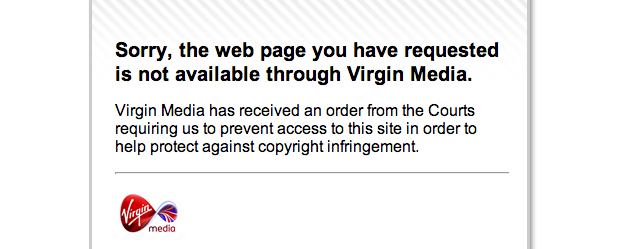This website uses cookies so that we can provide you with the best user experience possible. Cookie information is stored in your browser and performs functions such as recognising you when you return to our website and helping our team to understand which sections of the website you find most interesting and useful.
Brands & Merch Business News Digital Legal
Appeals court ruling extends web-blocking to trademark infringing sites
By Chris Cooke | Published on Friday 8 July 2016

The UK’s Court Of Appeal has upheld a 2014 injunction which extends good old web-blocking to websites that infringe trademarks rather than copyright.
A much previously reported, web-blocking has become an anti-piracy tactic of choice for the UK entertainment industry, with a plethora of copyright infringing websites now officially blocked in the UK, which means all the big internet service providers are obliged to do their best to stop their users from accessing those sites.
In most countries, when web-blocking is introduced for the first time, the ISPs object to being forced to police piracy in this way. But once web-blocking is common practice, they usually fall in line and accept the blocking of piracy sites as a routine part of running an internet provision business. And this has pretty much happened in the UK.
Except when, in 2014, luxury brand owner Compagnie Financière Richemont – which owns the Cartier and Mont Blanc brands, among others – sought to force the ISPs to start blocking websites selling counterfeit goods, rather than facilitating the downloading or streaming of unlicensed music and movies. This extended web-blocking beyond the realm of copyright and into the domain of trademarks, and the big ISPs argued that the law as currently written didn’t provide for such a thing.
Such was the opposition, that when, in 2014, the High Court did indeed issued the web-block injunction Compagnie Financière Richemont had requested, the ISPs took the matter to appeal. They argued that the court didn’t have the power to issue web-block injunctions in trademark cases, and even if it did required thresholds for such an injunction hadn’t been met in this case, and even if it had, they shouldn’t have to pay to administer the web blocks.
The appeals court ruled on the matter this week and, in the main, has sided with the luxury brand operator, insisting that [a] web-blocks are possible in trademark cases and [b] the thresholds for a web-blocking injunction were met in this case. As for who should pay for the web-blocks, judge Michael Briggs reckoned the rights owners should probably cover the admin costs, but that the ISPs are responsible for IT costs.
The net firms could as yet further appeal the matter to the Supreme Court. And if that was to take another two years, well, this week’s ruling was in part based on two European Union directives which may or may not apply here by then. Or maybe the ISPs will just give up at this point, and learn to live with web-blocking as a routine part of trademark management, in the same way UK net providers now have little issue with web-blocks on copyright grounds.





